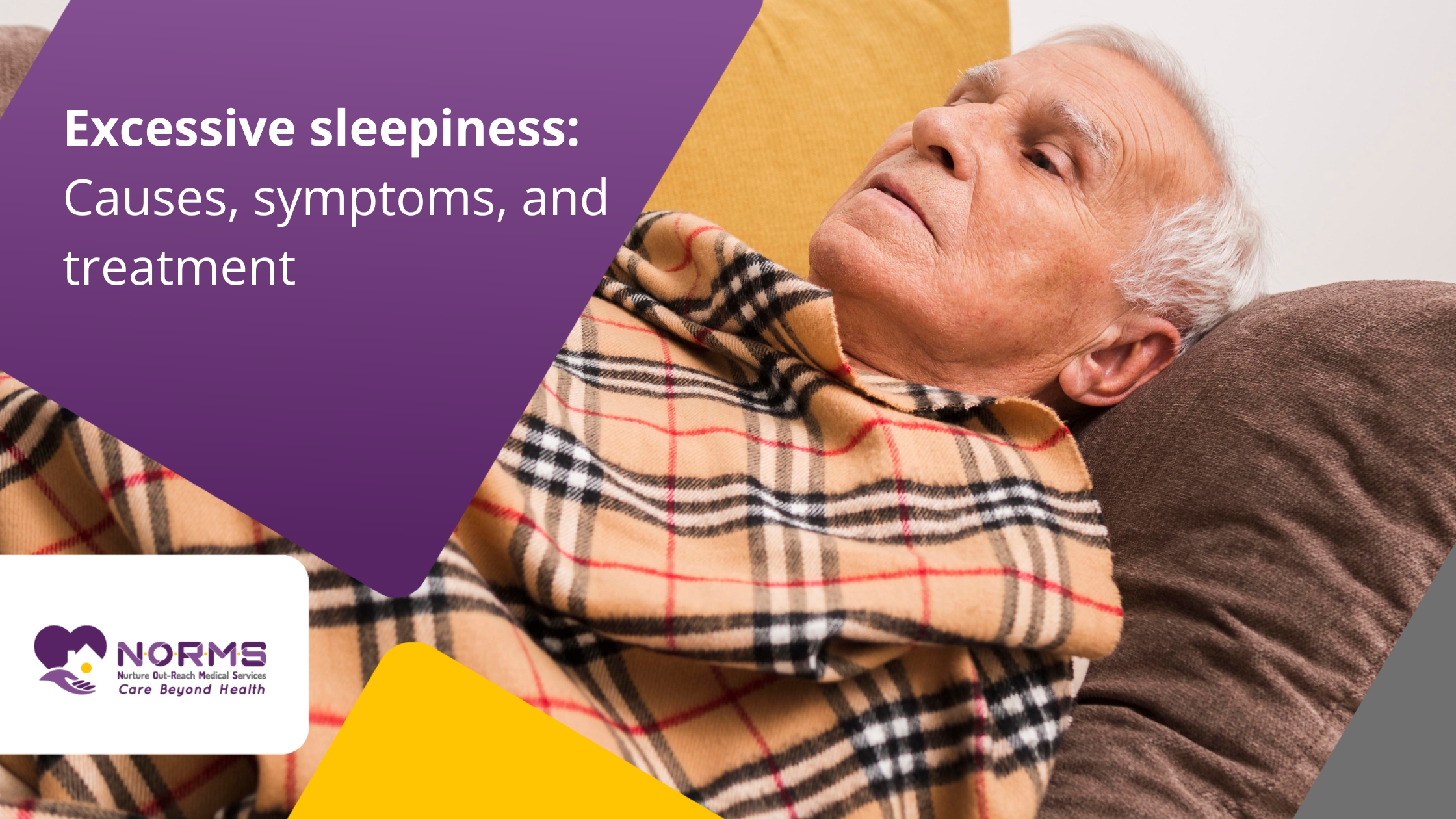
Hypersomnia, or excessive sleepiness, is another disorder characterised by tiredness or excessive sleepiness during wakefulness after adequate sleep. This may disrupt functional ability, cause inattention, and reduce the patient’s quality of life. In this blog, the contributor will discover conditions that precipitate excessive sleepiness, signs of the condition, and ways to manage it.
When discussing the causes of drowsiness, we dive into many facets of understanding excessive sleepiness. Let us now delve into understanding the causes of drowsiness.
Sleep apnea is a condition that causes a person to pause breathing several times during sleep. These disruptions may disrupt the opportunity for sleep and thus create daytime sleepiness. Most adults experience obstructive sleep apnea, and it is highly observed in overweight individuals.
Narcolepsy is a neurological sleep disorder characterised by abnormal muscle weakness and loss of consciousness at inappropriate times. Individuals suffering from narcolepsy are said to have transient, decisive bouts of sleep during the day with a potential collapse, muscle weakness, and hallucination during the attack.
Irregular sleep patterns, night working, or lack of quality sleep can cause sleep deprivation, which causes drowsiness during the day. Extensive use of electronic gadgets during the night or taking coffee in the evening can also determine sleep quality.
This form of side effect may be seen in drugs, including antihistamines, antidepressants and sedatives. They cause the patients to feel tired during the day,, which can significantly affect one’s life if taken for some time.
There is an adverse relationship between sleep disturbance and mental health disorders such as depression and anxiety as such, depression induces insomnia or excessive sleeping. People with depression show signs of tiredness and, hence, feel sleepy throughout the day.
The primary test for diagnosing excessive sleepiness is reportedières, which is feeling extremely tired or sleepy at work during the day even after adequate night sleep.
It is expected to find individuals with excessive sleepiness yawning or fighting hard to keep their eyes open during a book, television program, or conversation. They may also have impaired concentration or sleep during work or driving a vehicle.
The most common complaints about excessive sleepiness include the constant need for daytime naps, although the person still feels sleepy after getting up.
It is a cardinal sign of inefficiency and may lead to poor work or daily performance by causing coordination problems, poor memory, and difficulty in decision-making.
Lack of sleep and general bodily weakness can cause the swinging of emotions, irritability, and also depression.
One of the best ways to address sleepiness is through sleep hygiene. This includes sleeping and waking up simultaneously, avoiding foods that cause heartburn, avoiding caffeine products, and taking a warm bath before going to bed. It also includes creating a conducive environment by having the proper clothing covering just before bed.
Excessive sleepiness can be induced by other disorders such as sleep apnea, depression, or narcolepsy, and therefore their treatment is vital. Additional sleep studies may be done, and the treatments may include prescriptions for sleep medication or such therapies as CPAP for sleep apnea.
For symptomatic treatment of diseases like narcolepsy, doctors may recommend stimulants that include modafinil and methylphenidate to enable the patient to be awake. Antidepressants might also be prescribed, as well as other treatments, depending on the cause.
CBT is a psychological treatment that is used in the management of sleep disturbances to replace harmful sleep-related behaviours or thoughts. That makes it ideal for those with sleep disorders which stem from factors such as insomnia or anxiety.
Moderate exercise, at least 30 minutes on most or all days of the week, can enhance and standardise sleep. People should avoid taking naps during the day as they can lead to nighttime sleeping; therefore, they should do some exercise in the morning or early afternoon.
Fatigue is often associated with excessive sleepiness; in this case, it becomes almost impossible to remain alert during the day. It is commonly associated with sleep disorders, a poor sleep regimen or a predisposing health condition. This involves making some changes to assess the cause, promoting good sleeping habits, and, if need be, taking sleeping pills or undergoing sleeping therapy. If you are suffering or you have a friend or your spouse who is suffering from excessive sleepiness or excessive sleeping, then it’s high time you see a doctor of your choice for further diagnosis and treatment.
Fatigue or sleepiness can be significantly controlled if the underlying cause is identified and treated appropriately, whether it is a sleep disorder, poor sleep hygiene, or other disease. Often, patients change their life habits or contact a doctor, which causes them to decrease considerably.
It can be. Such diseases like sleep apnea, narcolepsy, or even consuming hormones for heart disease can lead to excessive sleepiness. When you are often tired, seeking medical advice to get checked up if you suffer from other complications is advisable.
For typical physiological and psychological performance, adults require 7 to 9 hours of sleep every night. However, quality comes hand in hand with quantity; thus, proper sleep hygiene is crucial to avoid oversleeping during the day.